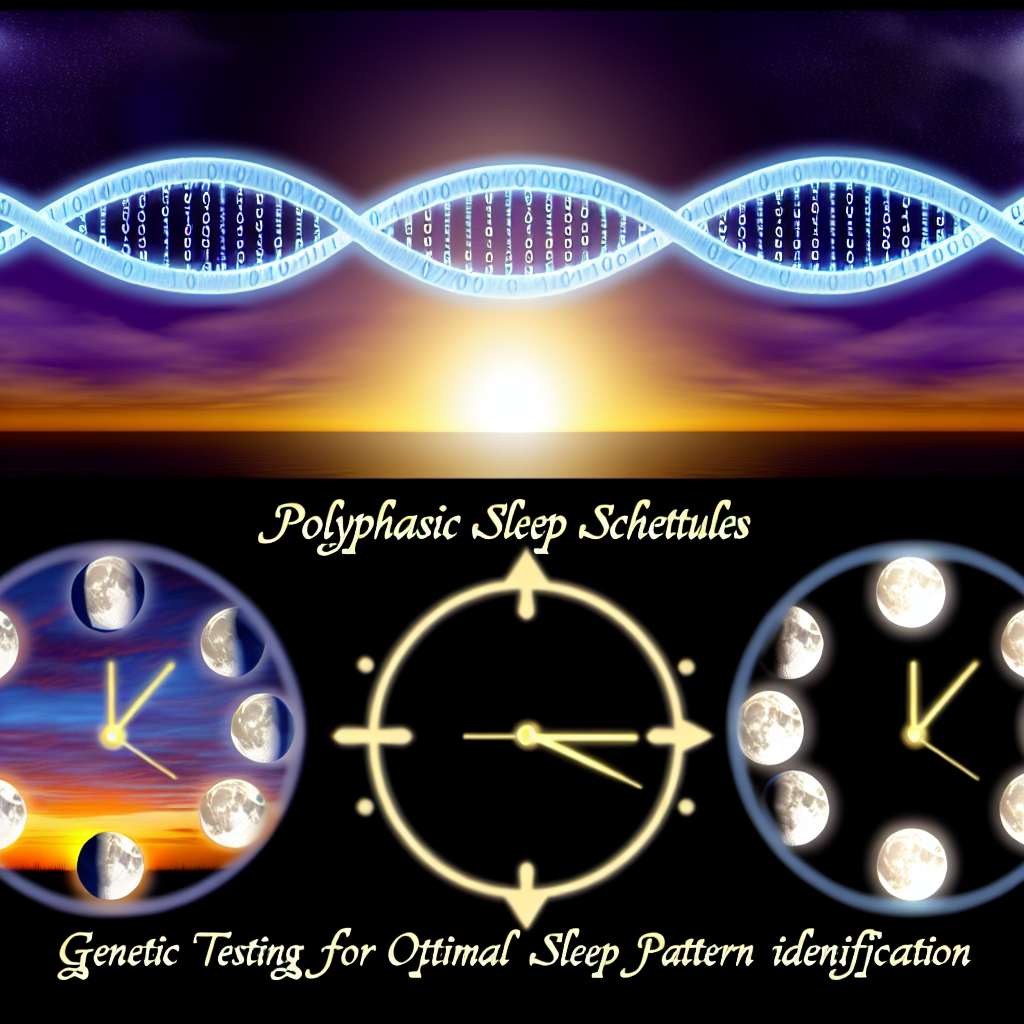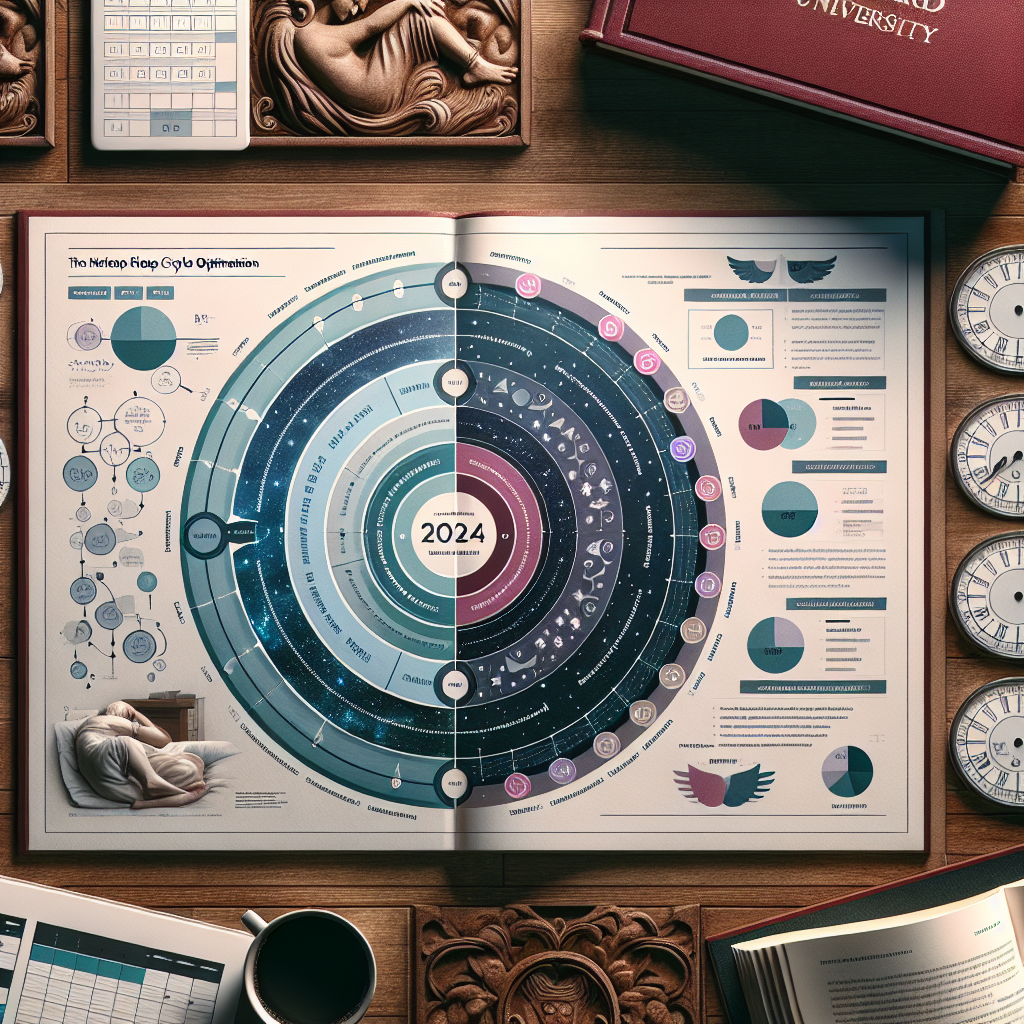Polyphasic Sleep Schedules: Can Genetics Unlock Your Optimal Rest Cycle?
Sleep is an essential biological process responsible for cognitive functioning, emotional regulation, physical restoration, and overall well-being. While society traditionally adheres to a monophasic sleep cycle — typically 7 to 9 hours of uninterrupted sleep at night — history and science reveal that humans are capable of adapting to alternative sleep patterns, including polyphasic sleep.
Polyphasic sleep schedules, which involve multiple sleep episodes spread throughout a 24-hour period, have garnered attention among individuals aiming to boost productivity, extend wakefulness, and optimize their sleep based on biological rhythms.
Genetics and Sleep: Unlocking the Blueprint of Personal Rest
Understanding the genetic basis of sleep variation is central to optimizing sleep patterns such as polyphasic schedules. A number of scientific studies have unraveled the complex interplay between sleep behaviors and our genes, suggesting that our ability to adapt to polyphasic sleep may, in fact, depend on our unique genetic code.
One of the most notable genetic discoveries related to sleep is the identification of the DEC2 gene mutation, which appears to be linked to natural short sleep. According to a landmark study published in Science, individuals with a mutated form of DEC2 function well on just 4 to 6 hours of sleep per night without the usual cognitive or physical impairments seen in the general population ([He et al., 2009](https://www.science.org/doi/10.1126/science.1174443)). This discovery adds credibility to the idea that some people may thrive on polyphasic patterns naturally due to their shorter sleep need.
Similarly, the CLOCK gene is crucial in regulating circadian rhythms. Variants within the CLOCK gene can influence sleep timing and chronotype, determining whether someone’s internal body clock is aligned with early or late sleep and wake times. A 2017 review in Nature Reviews Neuroscience explored how polymorphisms in these circadian genes affect social jetlag, sleep quality, and even mood disorders ([Partonen, 2017](https://www.nature.com/articles/nrn.2017.66)).
Understanding a person’s chronotype — whether they are naturally a morning lark or night owl — is vital when developing a polyphasic sleep strategy. Genetic testing platforms such as 23andMe, Genomelink, and DNAfit now offer reports that include genetic insights into sleep behaviors and potential predisposing factors for insomnia, decreased REM sleep, and daytime sleepiness.
A genome-wide association study published in Nature Communications evaluated over 1.3 million individuals and confirmed more than 950 genetic loci associated with being a morning or evening person ([Jones et al., 2019](https://www.nature.com/articles/s41467-019-08917-4)). This robust dataset supports the notion that our internal timers can be genetically guided, meaning polyphasic sleep could potentially be better tolerated by specific genotypes.
Smart Technology Meets Sleep Science: Real-Time, DNA-Driven Sleep Optimization
Moreover, as sleep research advances, wearable technologies integrated with AI and genetic analytics help monitor and adjust sleep schedules in real-time, offering users biologically-aligned sleep recommendations. Personalized biofeedback, informed by genetic testing, increases the probability of successfully maintaining a polyphasic schedule without harming long-term health.
Despite the growing body of genetic evidence, it’s worth noting that few large-scale clinical trials have directly tested polyphasic schedules in genetically-preselected populations. Yet, the intersection between genetics and sleep opens a promising path for those considering alternatives to conventional sleep — particularly for shift workers, entrepreneurs, caregivers, creatives, and others seeking greater flexibility without sacrificing health.
The Future of Sleep is Personal: Genetic Testing Points the Way
As the science of sleep merges with the expanding field of genetic testing, there is a compelling opportunity to truly personalize how we rest. Polyphasic sleep schedules, while unconventional and often criticized, may be a viable option for certain individuals — especially those with genetic predispositions that align with short sleep cycles or flexible circadian rhythms.
Through testing for genes such as DEC2, CLOCK, and PER2, individuals can gain a deeper understanding of their innate sleep patterns and tailor a rest regimen that not only fits their lifestyle but also honors their biological makeup.
Although much remains to be explored in terms of long-term health outcomes and optimal scheduling tactics, the potential for genetically-guided sleep architecture ushers in a new era in sleep science — one that prioritizes personal data over general recommendations. For those seeking to adopt or refine a polyphasic sleep approach, genetic testing may be the key to unlocking a more efficient and healthful path to rest and wakefulness. Consulting with sleep medicine or genetics professionals is critical in interpreting results and navigating this highly personalized journey toward improved sleep health.
Concise Summary:
Polyphasic sleep schedules, which involve multiple sleep episodes throughout the day, have gained attention for their potential to boost productivity and optimize biological rhythms. Emerging research suggests that an individual’s genetic profile, including markers like the DEC2 and CLOCK genes, may play a crucial role in determining their ability to adapt to alternative sleep patterns. As personalized medicine and sleep science evolve, genetic testing could unlock a more tailored approach to sleep, helping individuals design a rest regimen that aligns with their unique biology.

Dominic E. is a passionate filmmaker navigating the exciting intersection of art and science. By day, he delves into the complexities of the human body as a full-time medical writer, meticulously translating intricate medical concepts into accessible and engaging narratives. By night, he explores the boundless realm of cinematic storytelling, crafting narratives that evoke emotion and challenge perspectives.
Film Student and Full-time Medical Writer for ContentVendor.com




